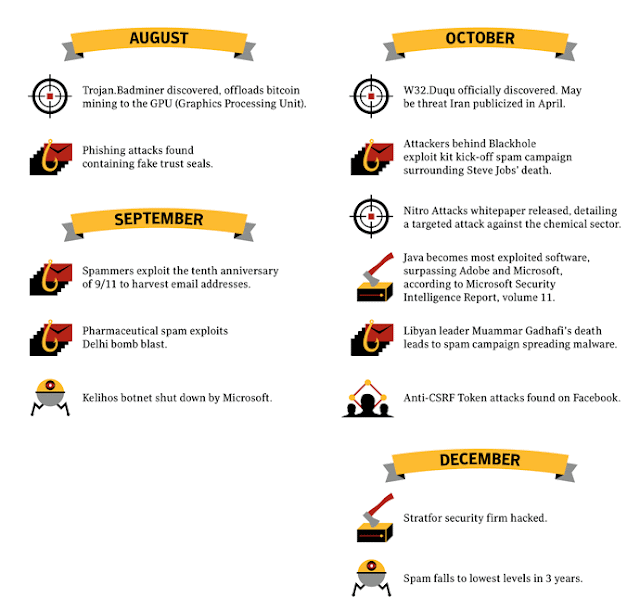More Examples of Cyber Spying:
All examples above come word for word from http://www.manufacturing.net/articles/2012/01/how-china-is-stealing-our-secrets (cited below).
- David Yenb, an employee of Valspar, downloaded proprietary paint formulas valued at $20 million with the intent to sell them to China.
- Meng Dong, a DuPont Corp. research chemist, downloaded proprietary information on organic light emitting diodes with the intent of sending them to a Chinese University.
- Yu Xiang Dong, a product engineer with Ford Motors copied 4,000 Ford documents onto an external hard drive with the intent of transferring the data to an auto company in China.
- McAffe Company attributed an intrusion attempt by a company with a Chinese IP address to steal data from a computer system of a petro chemical company.
An ad for foreign economic espionage awareness. http://www.ncix.gov/publications/posters/poster_240m_1.php
Brenner, Joel. America the Vulnerable: Inside the New Threat Matrix of Digital Espionage, Crime, and Warfare. New York: The Penguin Press, 2011. Print.
Collins, Mike. "How China Is Stealing Our Secrets." Manufacturing.net. Advantage Business Media, 18 Jan. 2012. Web. 09 Dec. 2012.










